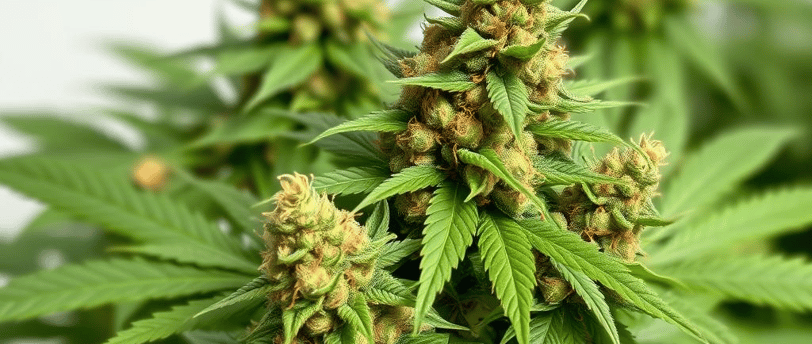Exploring the Health Benefits of Cannabis: A Comprehensive Guide
HERBAL INSIGHTS


Cannabis has transcended its controversial status to become a subject of significant scientific inquiry, thanks to its myriad health benefits. From potential therapeutic effects to culinary innovations, cannabis offers a versatile array of applications. This comprehensive guide aims to unravel the health benefits of cannabis, addressing its forms, common symptoms and causes it may alleviate, recipes, dosages, side effects, and precautions. Additionally, we will delve into scientific evidence supporting its use, providing reliable references for further reading.
Forms Available
Cannabis is available in various forms, each offering unique benefits and methods of consumption. The primary forms include:
Flower/Bud: Commonly used for smoking or vaporization, offering rapid onset of effects.
Edibles: Infused into food products like gummies, chocolates, and baked goods, these provide a discreet and long-lasting effect.
Oils and Tinctures: Often used sublingually or mixed with food and drinks for controlled dosing.
Topicals: Creams and balms applied to the skin, beneficial for localized pain and inflammation.
Capsules: Provide a measured dose in a convenient format for ingestion.
Common Symptoms and Causes Addressed by Cannabis
Cannabis has shown promise in alleviating various symptoms and conditions, with scientific research continually expanding our understanding. Common symptoms and causes include:
Chronic Pain: Cannabis, particularly strains high in cannabidiol (CBD) and tetrahydrocannabinol (THC), can help manage pain by interacting with the body's endocannabinoid system.
Anxiety and Depression: Certain compounds in cannabis may promote relaxation and improve mood, providing relief for mental health conditions.
Inflammation: CBD, in particular, is noted for its anti-inflammatory properties, potentially aiding in conditions like arthritis.
Insomnia: Cannabis may improve sleep quality and reduce the time taken to fall asleep.
Nausea and Appetite Loss: THC is effective in increasing appetite and reducing nausea, beneficial for patients undergoing treatments like chemotherapy.
Cannabis-Infused Recipes
Cannabis is increasingly finding its way into kitchens worldwide, offering a novel way to enjoy its benefits. Here are some popular cannabis-infused recipes:
Cannabis Butter (Cannabutter): A staple for many recipes, cannabutter allows the infusion of cannabis into baked goods and savory dishes.
Chocolate Cannabis Brownies: A classic treat where cannabutter enhances the flavor and effect.
Cannabis-Infused Olive Oil: Perfect for salads and pasta, this oil offers a healthy way to incorporate cannabis into daily meals.
Dosage
Determining the right cannabis dosage is crucial and depends on factors such as form, desired effect, and individual tolerance. It is advisable to start with a low dose, especially for new users, and gradually increase until the desired effect is achieved. For edibles, a common starting dose is 5-10 mg of THC, while CBD products vary, often beginning at 25 mg for general wellness.
Side Effects and Precautions
While cannabis has many benefits, it is not without potential side effects. Common side effects include dizziness, dry mouth, increased appetite, and, in some cases, anxiety or paranoia. Precautions include:
Starting with a low dose to gauge individual response.
Consulting with a healthcare professional, especially if taking other medications or having pre-existing health conditions.
Avoiding use during pregnancy and breastfeeding without medical advice.
How to Use Cannabis
Understanding how to use cannabis safely and effectively is vital. Whether consumed through smoking, vaping, edibles, or topicals, responsible use is key. It's recommended to follow these guidelines:
Choose the right form for your needs.
Consume in a safe and comfortable environment.
Store cannabis products securely and out of reach of children and pets.
Scientific Evidence and References
The scientific community continues to explore the health benefits of cannabis, with numerous studies validating its efficacy in treating various conditions. For comprehensive scientific evidence, consider the following references:
National Academies Press: "The Health Effects of Cannabis and Cannabinoids" - A thorough examination of current evidence and recommendations.
Journal of Pain: Studies showcasing cannabis's effectiveness in managing chronic pain.
Journal of Clinical Psychology: Research on cannabis's impact on anxiety and depression.
In conclusion, while cannabis offers promising health benefits, it is essential to approach its use with caution, informed by scientific evidence and professional guidance. Its various forms and applications provide individuals with numerous opportunities to explore its potential benefits while being aware of the necessary precautions to ensure safe consumption.
